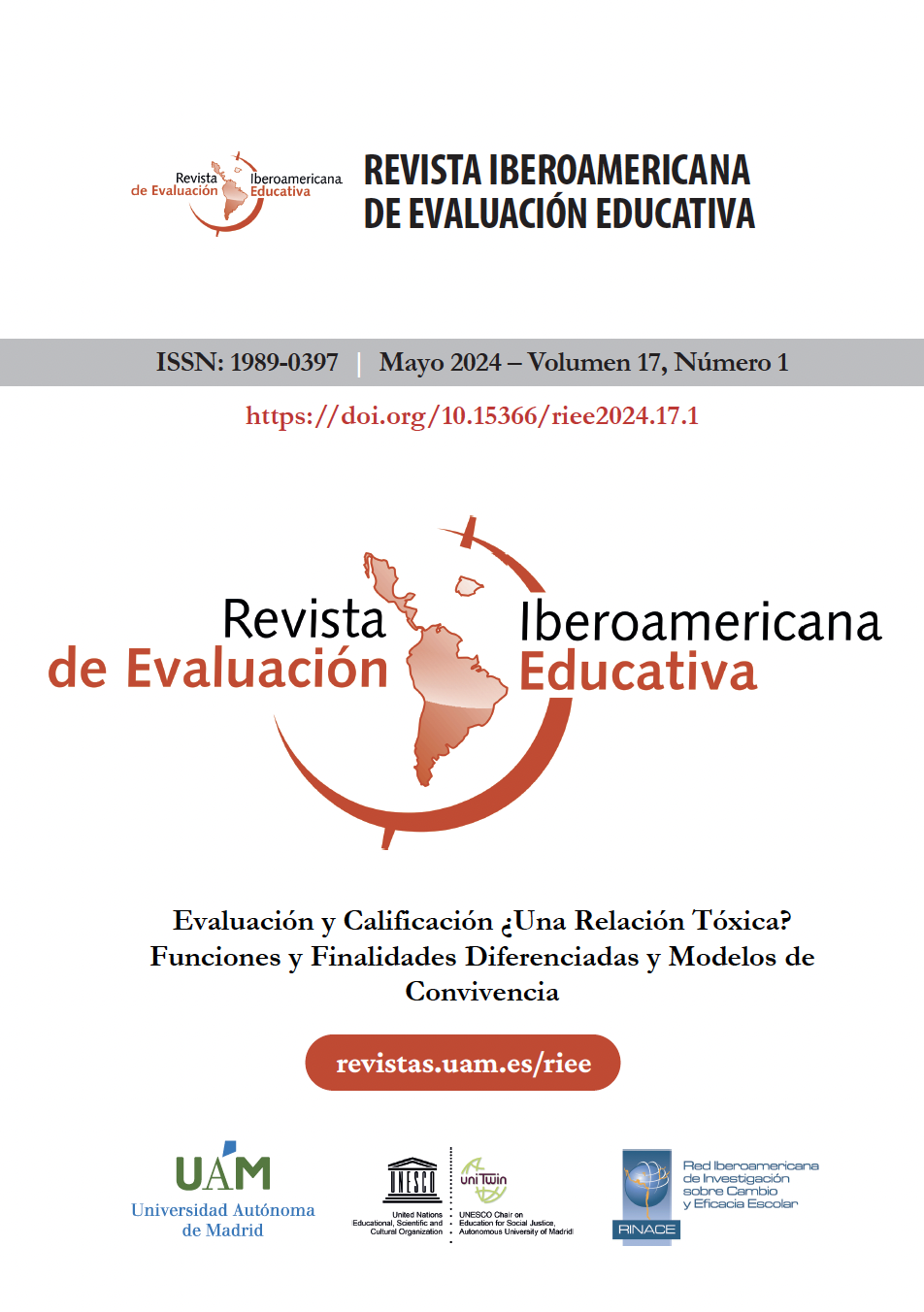Professional Learning Communities to Implement Formative Evaluation. From the Evaluation of Student Learning to the Evaluation of Teaching Practice
Keywords:
Professional learning communities , Formative assessment, Teacher professional development, Educational research, Feedback
This work is licensed under a Creative Commons Attribution-NonCommercial-NoDerivatives 3.0 Unported License.
Abstract
Formative assessment is clear in education legislation and is one of the key features of assessment at all stages of compulsory education. However, its implementation is varied and its purpose is misunderstood by some teachers. This article reviews the implementation attempts that have been carried out in a wide variety of schools, from the point of view of teacher trainers who try to train faculty to carry out such implementation successfully. Based on this review, different strategies are suggested for teachers to change their view of assessment, highlighting the role that the generation of professional learning communities can play in this process, its achievements, and its challenges.
Downloads
References
Biesta, G. (2023). Outline of a theory of teaching: What teaching is, what it is for, how it works, and why it requires artistry. En A. Praetorius y C Charalambous (Eds.), Theorizing teaching (pp. 57-76). Springer. https://doi.org/10.1007/978-3-031-25613-4_9
Creemers, B. P. M. y Kyriakides, L. (2012). Improving quality in education: Dynamic approaches to school improvement. Routledge. https://doi.org/10.4324/9780203817537
Fernández, J. G. (2021). El pensamiento crítico y la formación permanente del profesorado. Cuadernos de Pedagogía, 522, 8-9.
Hammerness, K. M., Darling-Hammond, L. y Bransford, J. (2005). How teachers learn and develop. En L. Darling-Hammond y J. Bransford (Eds.), Preparing teachers for a changing world: what teachers should learn and be able to do (pp. 358-389). Jossey-Bass.
Krichesky, G. J. y Murillo, F. J. (2016). Las comunidades profesionales de aprendizaje. Una estrategia de mejora para una nueva concepción de escuela. REICE. Revista Iberoamericana sobre Calidad, Eficacia y Cambio en Educación, 9(1), 57-74. https://doi.org/10.15366/reice2011.9.1.004
Kruger, J. y Dunning, D. (1999). Unskilled and unaware of it: How difficulties in recognizing one’s own incompetence lead to inflated self-assessments. Journal of Personality and Social Psychology, 77(6), 1121-1134. https://doi.org/10.1037//0022-3514.77.6.1121
Leigh, A. (2010). Estimating teacher effectiveness from two-year changes in students' test scores. Economics of Education Review, 29, 480-488. https://doi.org/10.1016/j.econedurev.2009.10.010
Mercer, N. (2000). Lenguaje y pensamiento. Paidós.
Mitchell, C. y Sackney, L. (2000). Profound improvement: Building capacity for a learning community. Zeitlinger.
Morales-Lobo, M. (2019). Implementando la evaluación formativa a nivel de centro. Cuadernos de Pedagogía, 504, 50-54.
Morales-Lobo, M., Fernández, J. G. y Sanmartí, N. (2022). La evaluación formativa: Estrategias eficaces para regular el aprendizaje. SM.
Muijs, D., Kyriakides, L., Werf, M., Creemers, B., Timperley, H. y Earl, L. (2014). State of the art. Teacher effectiveness and professional learning. School Effectiveness and School Improvement, 25, 51-77. https://doi.org/10.1080/09243453.2014.885451
OECD. (2019). TALIS 2018 results: Teachers and school leaders as lifelong learners. OECD.
Panadero, E. (2023). Toward a paradigm shift in feedback research: Five further steps influenced by self-regulated learning theory. Educational Psychologist, 58(3), 193-204. https://doi.org/10.1080/00461520.2023.2223642
Perrenoud P. (2007). Desarrollar la práctica reflexiva en el oficio de enseñar: Profesionalización y razón pedagógica. Graó.
Rull-Pallarès, J. y Sanmartí Puig, N. (2023). Una avaluació sense qualificacions al batxillerat: Una estratègia per potenciar la regulació dels aprenentatges. Ciències, 46, 46-53. https://doi.org/10.5565/rev/ciencies.484
Vezub, L. F. (2013). Hacia una pedagogía del desarrollo profesional docente: Modelos de formación continua y necesidades formativas de los profesores. Páginas de Educación, 6(1), 97-124.
Verástegui, M. y Úbeda, J. (2022). El papel del conocimiento en la agencia docente: Un modelo teórico de comprensión. Teoría de la Educación. Revista Interuniversitaria, 34(2), 237-255. https://doi.org/10.14201/teri.26953
Verástegui, M., Manso, J. y Úbeda, J. (2023). Systemic model of educational teacher knowledge: Teacher collaboration as the main key. Qualitative Research in Education, 12(2), 149-174. https://doi.org/10.17583/qre.11384
Wenger, E. (2001). Comunidades de práctica: Aprendizaje, significado e identidad. Paidós.
Wiliam, D. (2018). Embedded formative assessment. Solution Tree Press.
Wiliam, D. y Thompson, M. (2017). Integrating assessment with learning: What will it take to make it work?. En D. Dwyer (Ed.), The future of assessment (pp. 53-82). Routledge.
Wilson, D. (2005). Learning at work: Research lessons on leading learning in the workplace. Harvard Graduate School of Education.

